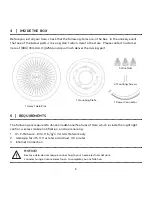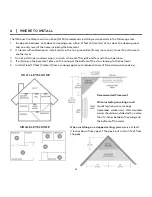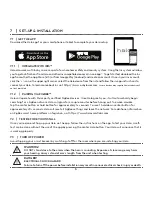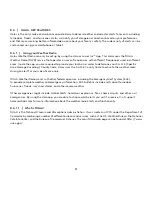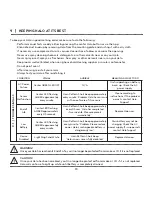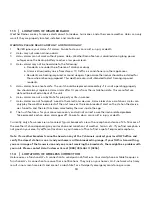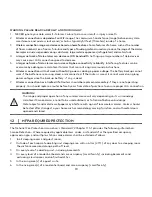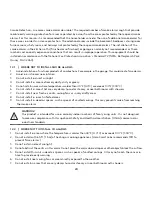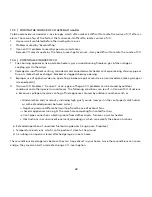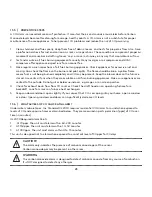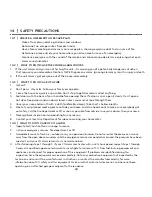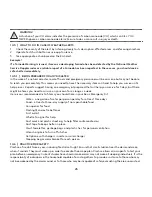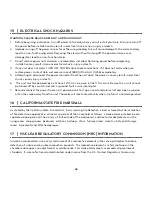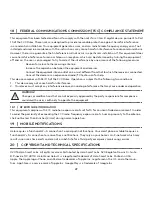
11.2 | LIMITATIONS OF CARBON MONOXIDE (CO) ALARMS
CO alarms play a key role in reducing deaths resulting from CO Poisoning. However, CO Alarms can only work if
they are properly located, installed, and maintained, and if CO reaches them. If they are not properly maintained,
are improperly ventilated, or malfunction, CO levels may not be properly detected.
Halo has a fixed setting for CO sensitivity at 30 to 700ppm ± 10ppm
WARNING: PLEASE READ CAREFULLY AND THOROUGHLY
1.
NEVER
ignore your carbon monoxide alarm if it alarms. Failure to do so can result in injury or death.
2.
CO Alarms may not wake all individuals.
Create an escape plan and practice with all members of the
family at least twice a year. Make sure everyone is involved.
3.
CO Alarms cannot work without power.
Battery operated units cannot work if the batteries are missing,
dead or disconnected. If the unit is wired, the CO alarms cannot work during long power outages once the
backup battery is dead. Halo will warn you in advance if the rechargeable battery is low.
4.
CO Alarms cannot detect CO if the CO does not reach the alarms.
Because bedroom doors may be closed
at night, it’s suggested homes have a CO alarm in each bedroom and in the hallways.
5.
CO Alarms may not be heard.
Though Halo comes with a loud alarm horn of 85 decibels, it may not be heard if:
a. Residents are under the influence of alcohol or drugs,
b. Alarm is drowned by noise from stereo, TV, traffic, air conditioner or other appliances,
c. Residents are hearing impaired, or sound sleepers. Special CO alarms should be installed for those
who are hearing impaired. This CO alarm is not intended to alert hearing impaired residents.
6.
CO Alarms have a limited life.
The unit should be replaced immediately if it is not operating properly. You
should always replace a CO Alarm after 10 years from date of purchase. Write the purchase date on the
space provided on back of unit.
7.
CO Alarms are not a substitute for property or life insurance.
8.
CO Alarms are not foolproof.
Like all other electronic devices, CO alarms have limitations. They can only
detect CO that reaches their sensors. They may not give early warning to rising CO levels if the CO is
coming from a remote part of the home, away from the CO alarm.
9.
The hush feature is for your convenience only and will not correct a CO problem.
Take immediate action
when carbon monoxide alarm goes off. Failure to do so can result in injury or death.
WARNING!
Some individuals are more sensitive to CO than others. People with cardiac or respiratory problems,
infants, unborn babies, pregnant mothers, or elderly people can be more quickly and severely
affected by CO. Members of sensitive populations should consult their doctors for advice on taking
additional precautions.
17

